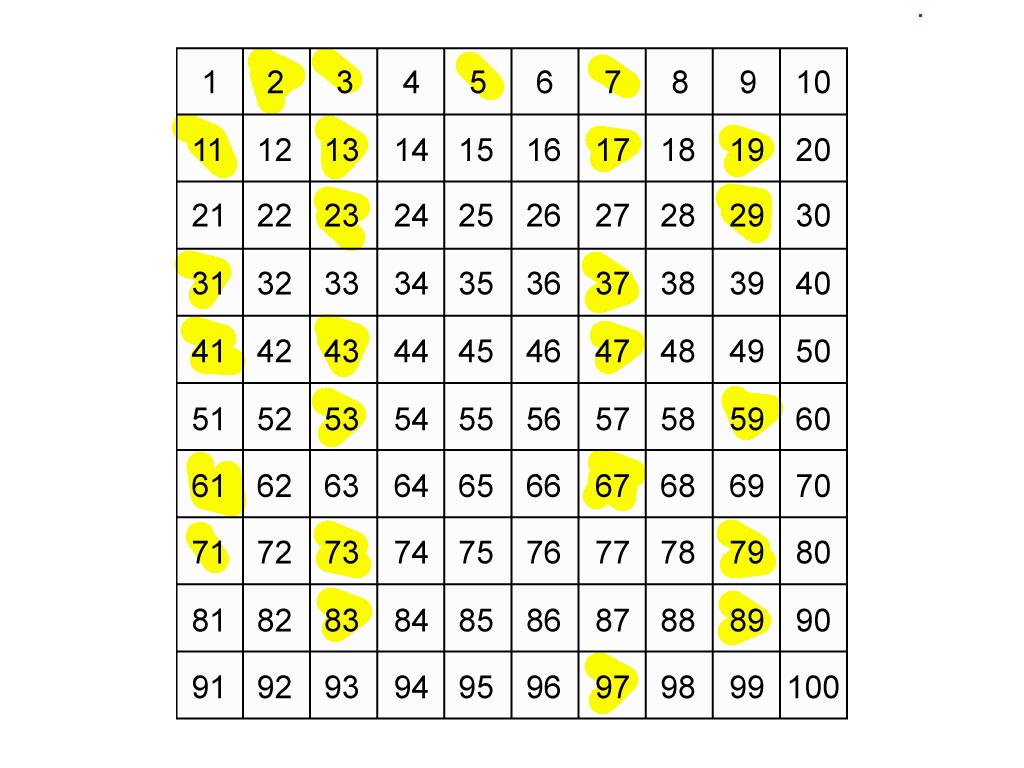
As Euclid established circa 300 BC, there exist an endless number of primes.Because it cannot be divided into groups of equal numbers, 7 is a prime number. This means that the sole elements of 7 are 1 and 7.This is due to the fact that 7 can only be factorised as follows: For example, 7 cannot be divided into equal-number groups.Only if a number can be factorised as a product of two numbers can we split it into groups with equal numbers of items/elements.In other words, a prime number is one that cannot be divided into equal groups. A prime number is a number bigger than one with exactly two elements, i.e.Because of the fundamental theorem of arithmetic, every natural number bigger than one is either a prime or can be factorised as a product of primes that is unique up to their order.


However, 4 is composite since it is a product of two numbers that are both less than four.

This indicates that it is a prime number. Consider the number 5, which has only two elements (1 and 5). Prime numbers are those that have only two factors: 1 and the number itself.


 0 kommentar(er)
0 kommentar(er)
